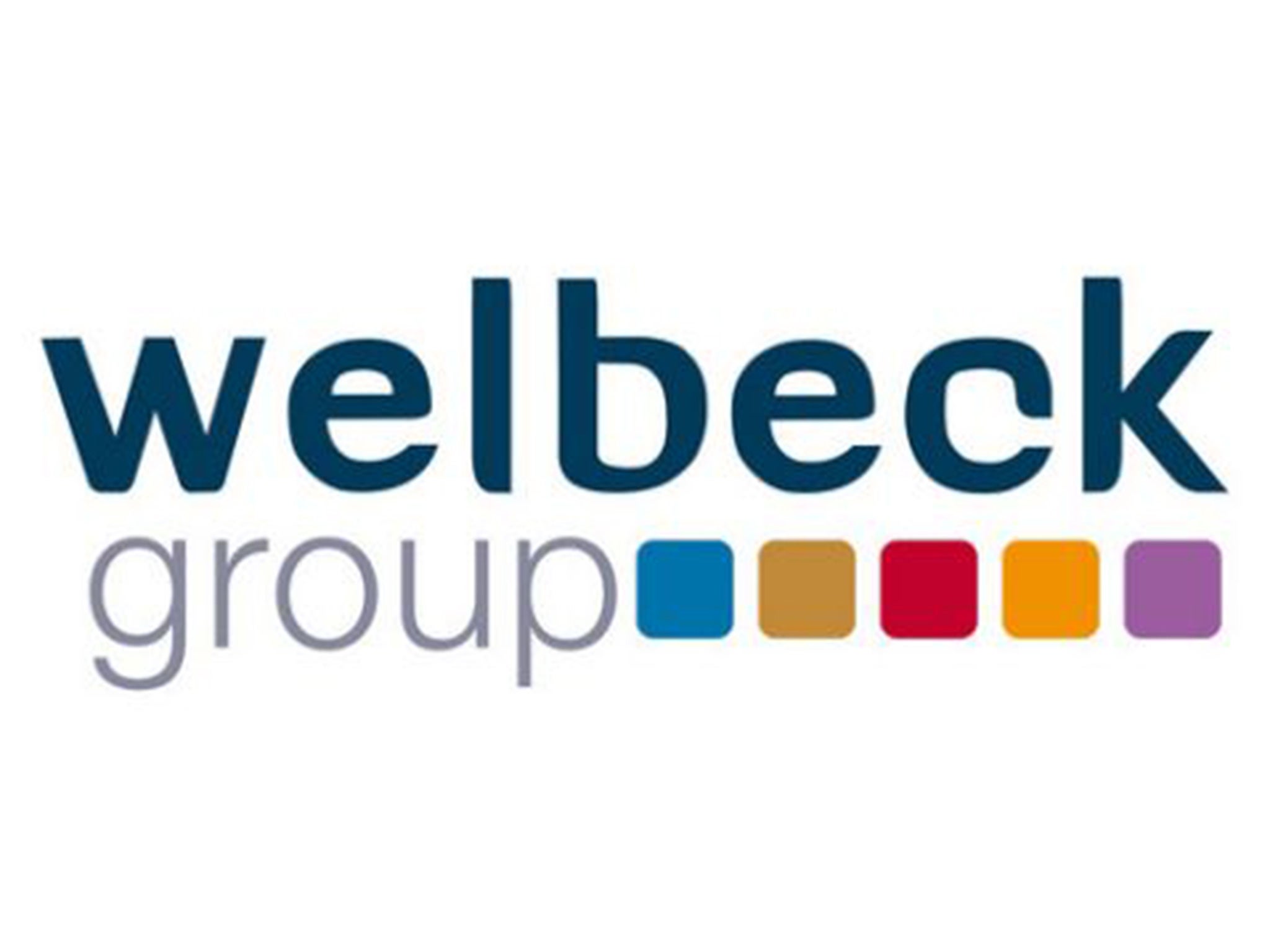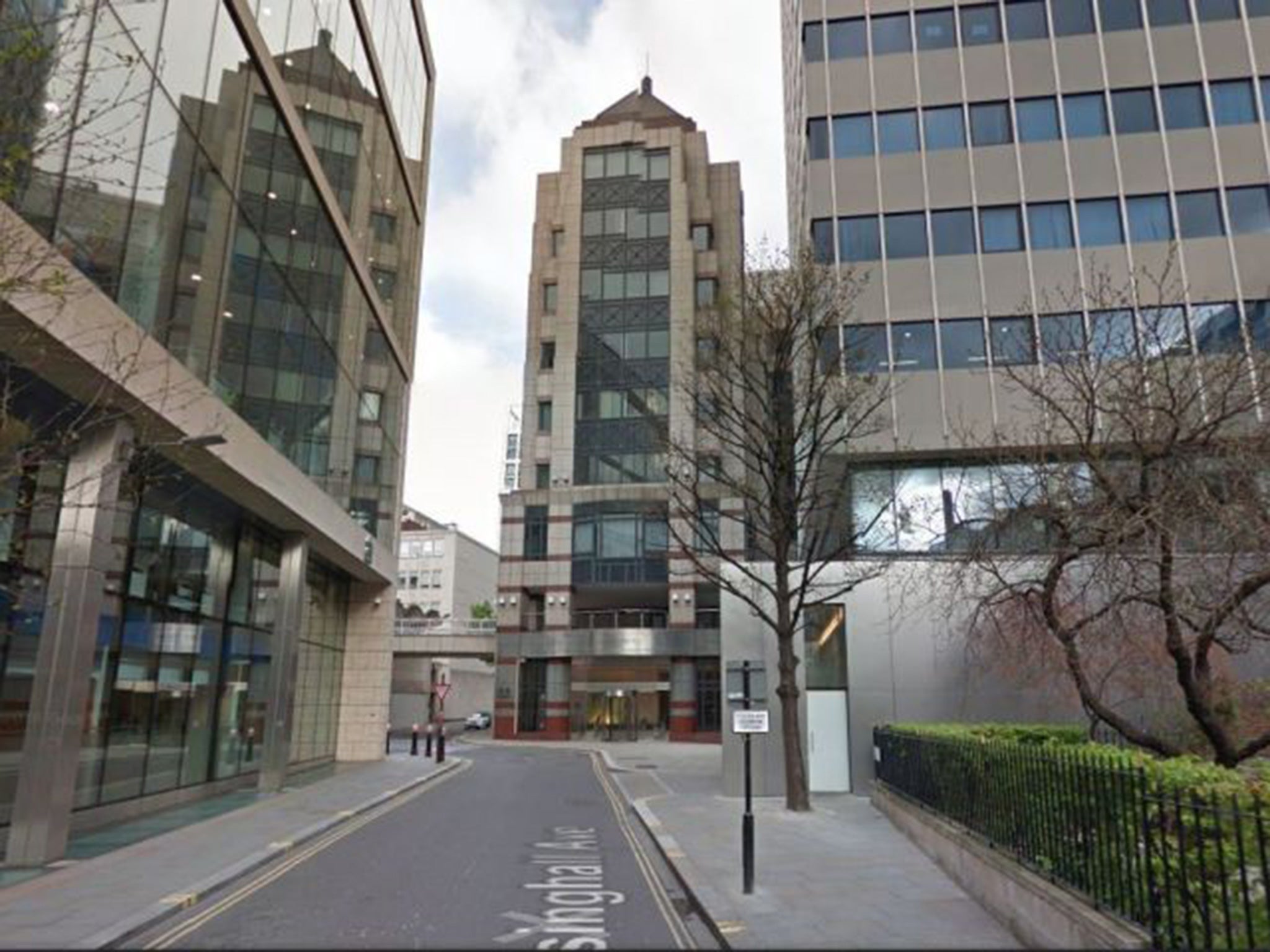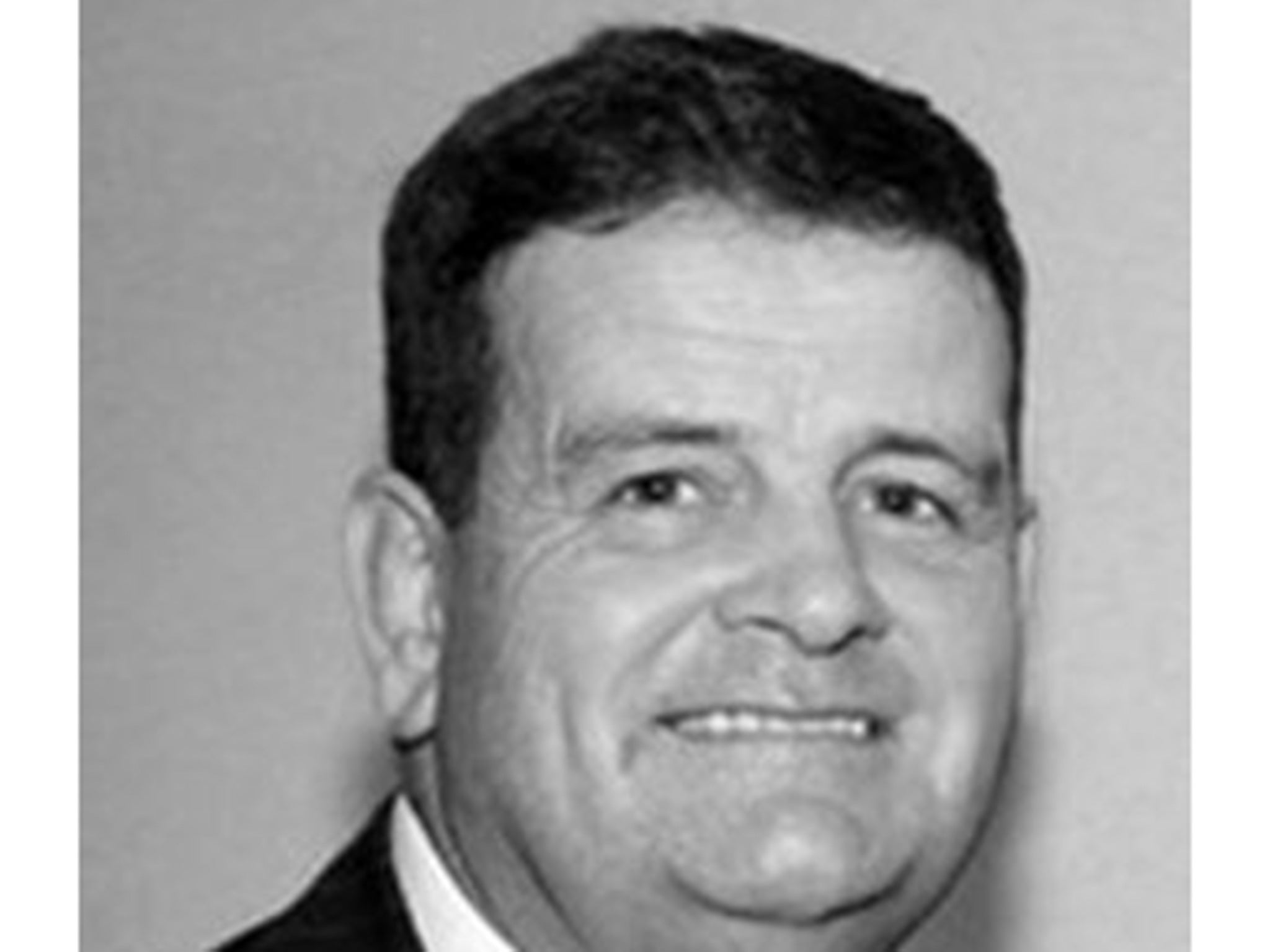Welbeck Solutions 'tax avoidance factory' snared City bankers with spam and cold calls, whistleblower reveals
Company used actresses including former Alan Partridge star to bombard financial sector workers with cold calls

The grey Basinghall Street office building, in the heart of London’s City financial district, gives few clues about the frenzy of activity that was going on inside.
But for years, this was the home of the biggest seller of aggressive Gary Barlow-style tax avoidance plans in Britain. It specialised in schemes such as Icebreaker and Liberty, which were subsequently banned by HMRC and tax tribunals.

From its open-plan offices operated a slick machine designed to persuade the richest men and women in the City to avoid large chunks of their multimillion-pound tax bills.
Now, a former employee has blown the whistle to The Independent on how this business – Welbeck Solutions – made millions of pounds in commission on these schemes, fuelling high-octane lifestyles for a select few Bentley and Lamborghini-driving bosses. All at the expense, through lost tax revenues, of the British public.
Across the Welbeck Group, which also sold pensions and other financial products, young actors and actresses, including Barbara Durkin, who starred in Steve Coogan’s hit Alan Partridge series, were recruited to hit the phones, using their drama school training to persuade Britain’s richest men and women to come in for consultations. Ms Durkin did not work on tax planning products but was one of many charismatic people used to charm potential customers.
Sports stars such as rugby ace Kenny Logan and his TV presenter wife Gabby were occasionally used to add celebrity lustre at client evenings. Mr Logan was a friend and business partner of the company’s founder, the former rugby player Greg Knight.
Welbeck Solutions’ business was simple: find aggressive tax plans that pay intermediaries like Welbeck big commissions, get an army of young college-leavers to cold-call the City’s multimillionaires, and sell them as many products as possible.
Tax tribunal judgments have resulted in millionaire celebrities including Gary Barlow and Mark Owen of Take That – as well as Gabby Logan herself – being caught out and, in some cases, forced to repay hundreds of thousands of pounds. Other cases are still going through lengthy tax tribunal processes.

Welbeck Solutions put more than 200 clients into the notorious Icebreaker scheme, helping them shelter nearly £80m from the taxman, the source claimed. Another 100 clients were put into Liberty. A further £30m or more was sheltered in “tech partnerships” and £23m in so-called “carbon programmes” – which gamed the tax system to reduce wealthy clients’ tax bills.
Due to the aggressive structure of the products, investors could shelter £200,000 of their income tax by spending as little as £40,000. In return, Welbeck would take a fee of as much as £3,000. For £1m sheltered, Welbeck would get around £30,000.
Documents show hundreds of senior bankers from companies such as UBS, Citigroup, Goldman Sachs and Barings piled into the schemes through Welbeck. For legal reasons, the individuals cannot be named at this time, but many are well-known figures in City investment banks and dealing rooms.
How the ‘icebreaker’ tax avoidance scheme worked
Tax-efficient investments are nothing new. Governments have for decades offered tax incentives to encourage people to invest in certain schemes and projects, allowing them to pay a reduced level of income tax on the money they invest.
However, schemes such as Icebreaker took this concept to new levels by getting investors not only to put their money in a tax-efficient scheme, but to borrow additional cash and use that to shelter their tax bill too. So, an investor might put £40,000 of their cash into Icebreaker but borrow a further £160,000. They would then state to the taxman that they had spent £200,000 running the business and claim the whole sum as a loss for tax purposes. In reality, the £160,000 loan would never be used.
Icebreaker would invest in the rights to a piece of music or books. One client told The Independent he had backed a giant book by luxury publishers Opus celebrating the Hajj pilgrimage.
But HMRC, backed by a tax tribunal ruling, said Icebreaker was primarily designed to avoid paying tax, rather than as a business investment. Many investors have been ordered to repay the tax they saved. Large numbers are appealing against the ruling and some investors have settled.
One senior investment banker, who tried to shelter £1m through a Welbeck-sold Icebreaker scheme, said he was told in recent weeks that HMRC would not be fining him as he had been able to prove he saw Icebreaker as a real business investment rather than a tax dodge.
Another, who sheltered £1.75m in Icebreaker, said: “The tax tribunal was a kangaroo court and we will win on appeal. Everyone tries to reduce their tax bills, from the Duty Free airport shopper to the person with an Isa. This is no different.”
As the ex-employee said: “We didn’t target celebrities because there just aren’t that many of them with this kind of cash. People outside financial services don’t realise this: just because someone’s on TV doesn’t mean they’re making hundreds of thousands of pounds a year. But most investment bank senior directors earn far more, and there are tens of thousands of them in the City. So that’s where we decided to hunt.”
One investor was even a partner at a Big Four accounting firm. He said he was “badly advised” by Welbeck, which cold-called him multiple times until he eventually agreed to meet them and invest: “There’s no doubt in my mind that Welbeck was a machine that found products that were on the edge of legality and then sold them in an industrialised way,” he said.
A typical marketing email sent by a Welbeck executive to a banker at UBS makes clear Welbeck’s agenda. It reads: “Tom, we provide the unbiased access to the best intellectual endeavour regarding tax avoidance… We have a scheme available that will reduce your income tax from 40% to 0% with 6% fees and can also attack the income you have earn’t [sic] over the last four years.”
If the tax scams were being challenged by the taxman in court, Welbeck’s sales supremos audaciously devised a new pitch explaining that the legally dubious situation was actually a benefit for the client.
The Independent has obtained the sales script for one such product, called Mercury.
It reads: “The good thing about this one is, it’s already been under [an HMRC] inquiry for six months so you’re sort of jumping in half-way through.”

It goes on: “There was actually a corporate version of this plan which got closed down about two years ago. The Revenue described the corporate one as the mother and father of all tax avoidance plans.”
The tax authorities legislated against it, the script says, but: “When they did that though, they did it quite clumsily, they repealed a part of the taxes Act that applied to corporations, not to individuals. Hence, we still have a window in time when this plan will work. Does that make sense?”
Perhaps surprisingly, there are no regulations against recommending such products.
The Welbeck whistleblower, who worked at the company for many years, said: “At our peak in 2012, we had about 80 staff making a million cold calls in a year. We were like a giant tax avoidance factory. It got so bad you didn’t want to admit you worked for Welbeck in City pubs or people would start abusing you for all the cold calls.”
With such a blizzard of calls going to bankers, traders and hedge fund managers, Welbeck was barred from more than 200 companies’ switchboards for being a nuisance. Documents show Goldman Sachs alone received 9,602 calls over six months before the bank demanded that Welbeck stopped.
But for many bankers and business executives, the allure of avoiding tax was too much to resist.
First they would be approached by the cold callers who would try to coax them into a face-to-face meeting using a script explaining the product.

Alternatively, potential tax avoiders would be invited to intimate “client evening” functions with a sports celebrity – often drawn from the world of rugby.
After those initial contacts, they would be invited to meet Welbeck’s more senior sales specialists, including two of its top executives, Gregor Shaw and Charlie Charalambous.
Ms Logan told The Independent it was Mr Shaw, 40, who persuaded her to invest in Icebreaker. Mr Shaw, speaking in the summer, described her statement as “rich” given that her husband was friends with chief executive Mr Knight. But he declined to comment further and did not respond to further questions from The Independent.
The whistleblower described Mr Shaw and Mr Charalambous as “extremely aggressive salesmen”.
Mr Charalambous declined to comment.
Another former employee said Mr Shaw was “incredibly hardworking, driven and boisterous”.
One potential Welbeck client who worked at Credit Suisse at the time and attended one of its events said: “There was something in their eyes that got you: they were very, very persuasive, but I decided there was something I didn’t like about it.”
Welbeck sales staff’s success meant massive commissions. Mr Shaw was reputed to have earned £100,000 in one month just from selling the Icebreaker product. Sources said he spent his earnings on high living, including a passion for Lamborghinis.
Only a select few of the most aggressive and successful trainees were kept on beyond a few months. For those who were deemed winners, rewards came not just in cash bonuses, but in lavish, and sometimes wild, company trips to exotic locations including New York, Miami or Langkawi, a Malaysian archipelago. “People would take full advantage of the excesses available,” said the source.
On a stay in Kuala Lumpur, he said, the team went to a bar famous for being frequented by prostitutes. A source on the trip said a senior manager tricked a junior male executive into receiving a sex act from a prostitute without telling him she was a transsexual. At the moment the prostitute stripped, the boss whipped out his camera and took a photo, which he showed off to other staff the next morning.
On another occasion back in London, a senior female member of staff who was a Hindu and vegetarian is alleged to have found a raw steak had been placed in her handbag. Numerous employees, particularly women, quit after having a problem with the company’s culture. One is thought to have left after being groped by a senior manager at one of the company’s boozy “Curry Club” social evenings.
One salesman, who joined straight from university, said he left after realising Welbeck’s atmosphere was over-the-top even by boisterous City standards. “For example,” he said. “I realised it wasn’t normal, or right, to be getting rewarded with foreign trips with your workmates. God knows what went on on them – I didn’t want anything to do with it. There was a culture at Welbeck and it was not pleasant,” he says.
Not all former employees were so critical. One said it gave him a good introduction to City work, while another praised the training it offered him as a young graduate.
The money earned by most of Welbeck’s sales team is likely to have been nothing compared with the remuneration of chief executive Mr Knight.
Sources said Mr Knight, 57, lived a lifestyle of big spending on cars and expensive restaurants, regularly spending hundreds of pounds at swanky establishments like Scott’s and Corrigans in Mayfair, not to mention frequent stays at the luxury Halkin Hotel, a couple of miles from his family home in north-west London.
He also ran up “legendary” parking bills on his green Bentley, the whistleblower said, paying them off with his company bank account.
Mr Knight, a former rugby player for London Scottish, gave generous donations to the club, presumably with the earnings from his tax avoidance empire. However, the source said that his poor management of the company led to large numbers of staff leaving.
Welbeck eventually collapsed into administration last year. Mr Knight was made personally bankrupt over the summer. Companies House filings indicate he remains a shareholder of London Scottish and KLAS International, a business network which he owns alongside Kenny Logan and another former rugby player, Peter Scrivener. Mr Scrivener said, however, he was no longer a KLAS shareholder, although he still appears on its website.
Through his lawyer, Mr Knight refused to comment.
The collapse of Welbeck has left creditors out of pocket. A report from the administrators last month shows Metro Bank is owed £1.4m.
Mr Knight is thought to have sold his £2m family home earlier this year.
Although Welbeck is no more, its old salesmen are still selling “tax planning” products elsewhere. Mr Shaw now operates a financial advisory business called Argentous from a skyscraper in the City, which sells products including green energy schemes which benefit from generous tax incentives. Argentous’s website declares: “Inflation and tax are one’s worst investment enemies.”
It promises: “We are your window to a world of investments you may never have seen before,” bizarrely adding: “You’re gold. We’re silver”.
It concludes that its customers are: “Aspiring superheroes, secret agents and cool rock-star types.
“If you just work for an investment bank or a law firm, we may be able to help you too. It’s never too late to start being cool.”
Join our commenting forum
Join thought-provoking conversations, follow other Independent readers and see their replies
Comments